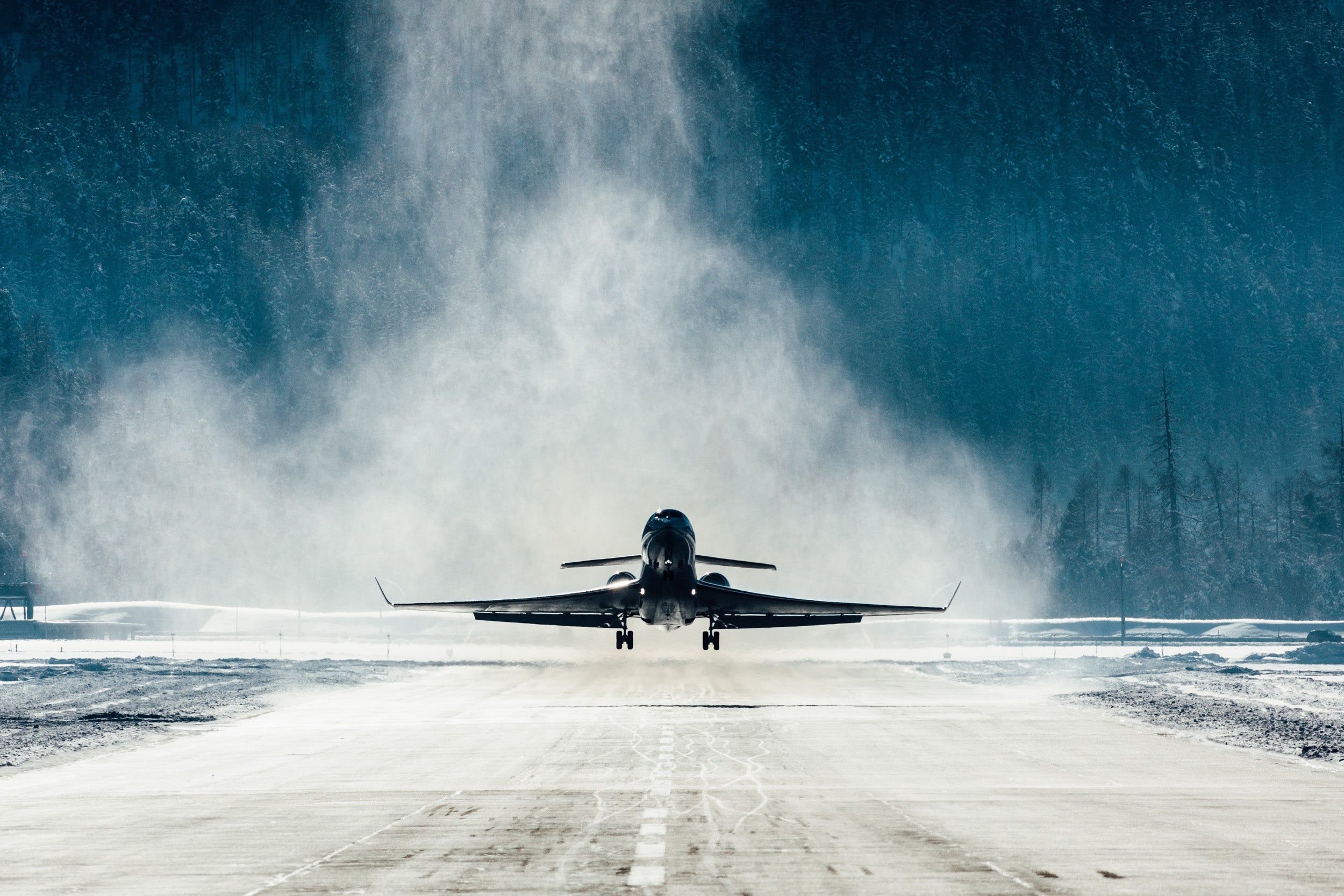Winter blues: Aggressive new coronavirus strain forces travel back into hibernation
It's been more than nine months since the novel coronavirus was first declared a pandemic. And despite the arrival of promising vaccines and an undeniable sense of pandemic fatigue, travel seems to be slipping back into hibernation.
Sure, there's been an uptick in travel during the holiday season, with more than 1 million people passing through airport security checkpoints in the U.S. on particularly busy days. But unfortunately, the world is facing a new pandemic-related challenge.
For more TPG news delivered each morning to your inbox, sign up for our daily newsletter.
While some sectors of the travel industry may be more insulated than others, this pullback won't be limited to one country or type of travel. Instead, it's looking like a large-scale retreat that will affect almost every airline, hotel, restaurant, cruise line and destination.
And it's happening even faster than we originally thought.
Last week, chaos broke out in Europe as countries banned flights from the United Kingdom in an attempt to slow the spread of a new, more aggressive strain of the coronavirus. New York requested travelers from the U.K. get tested before departure. Many parts of England — including London and its surrounding boroughs — became subject to elevated Tier 4 travel restrictions that limit travel within, to and from these areas, spelling the end of travel for the remainder of the year for many Britons, and travelers who had plans to visit England.
Today, the U.S. reported its first confirmed case of the new COVID-10 strain in Colorado. This discovery will likely lead to more stay-at-home orders as the U.S. attempts to curtail the spread of this aggressive new strain.
Across the globe in Japan, which once seemed to be a hallmark of successful pandemic control, a third wave of COVID-19 infections has catapulted the island nation into its highest-ever healthcare alert, according to Time. The surge of new cases has finally prompted the government to discontinue its Go To Travel campaign, aiming to reignite domestic travel.
Related: When will international travel return? A country-by-country guide to coronavirus recovery

There are other troubling indicators. Major credit card companies are posting double-digit drops in profit, claiming the decline of international travel has dramatically cut into revenues.
Even closer to home, it's clear that travel is on the decline. The New York Times reported this month that even gas station spending fell in October and November, as fewer people took to the roads. And AAA says it expects 34 million fewer travelers this holiday season, compared to 2019.
With new lockdowns and restrictions spreading much faster than holiday cheer, here's what the travel industry might look like by the time your lights and decorations are packed away for the year.
Airlines burn through cash with no business travelers in sight
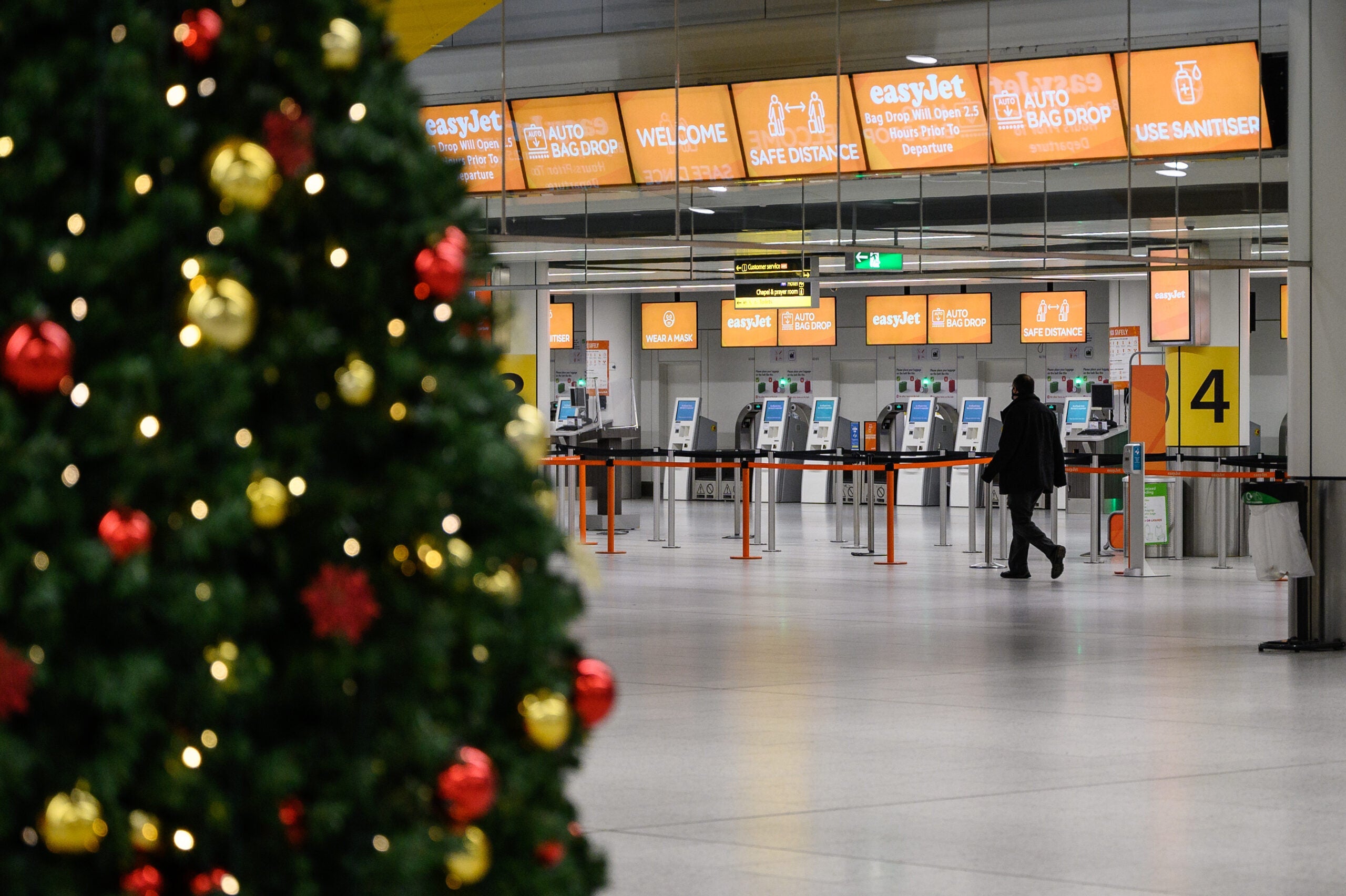
New restrictions and thousands of flight cancellations in the U.K. alone are likely to decimate the already weak demand for air travel.
This time last year, the Transportation Security Administration (TSA) expected to screen some 42 million passengers during the holiday season. This year, it's news when more than 1 million people pass through airport security checkpoints in a given day.
According to Reuters, U.S. carriers are burning through approximately $180 million every day as they see about 70% fewer passengers year-over-year. On Monday, the major carriers' stocks fell between 5 and 8% at the open of trading (though they've recovered a bit) despite the infusion of $15 billion in new payroll assistance for domestic airlines in the new stimulus bill.
Delta Air Lines reported a rough third quarter in October, saying passenger revenue dropped 83%, and now daily cash burn is even worse than expected. Other airlines have reported their own stark numbers during the period.
Back in October, Susquehanna analyst Christopher Stathoulopoulo downgraded American Airlines to the equivalent of a "sell" rating, worrying about the airline's future even as he suggested the industry as a whole could begin to recover in the second half of 2021. And just last week, JP Morgan double downgraded several airlines, including United and JetBlue, saying the recovery in their stock prices had gotten ahead of the firm's price targets.
In fact, most analysts don't see business travel — the bread and butter of air travel — returning anytime soon. Bank of America, in a research report cited by Business Insider, said industry revenues may not fully recover until "late 2023 or ... 2024."
Hotels face reduced occupancy and even more closures
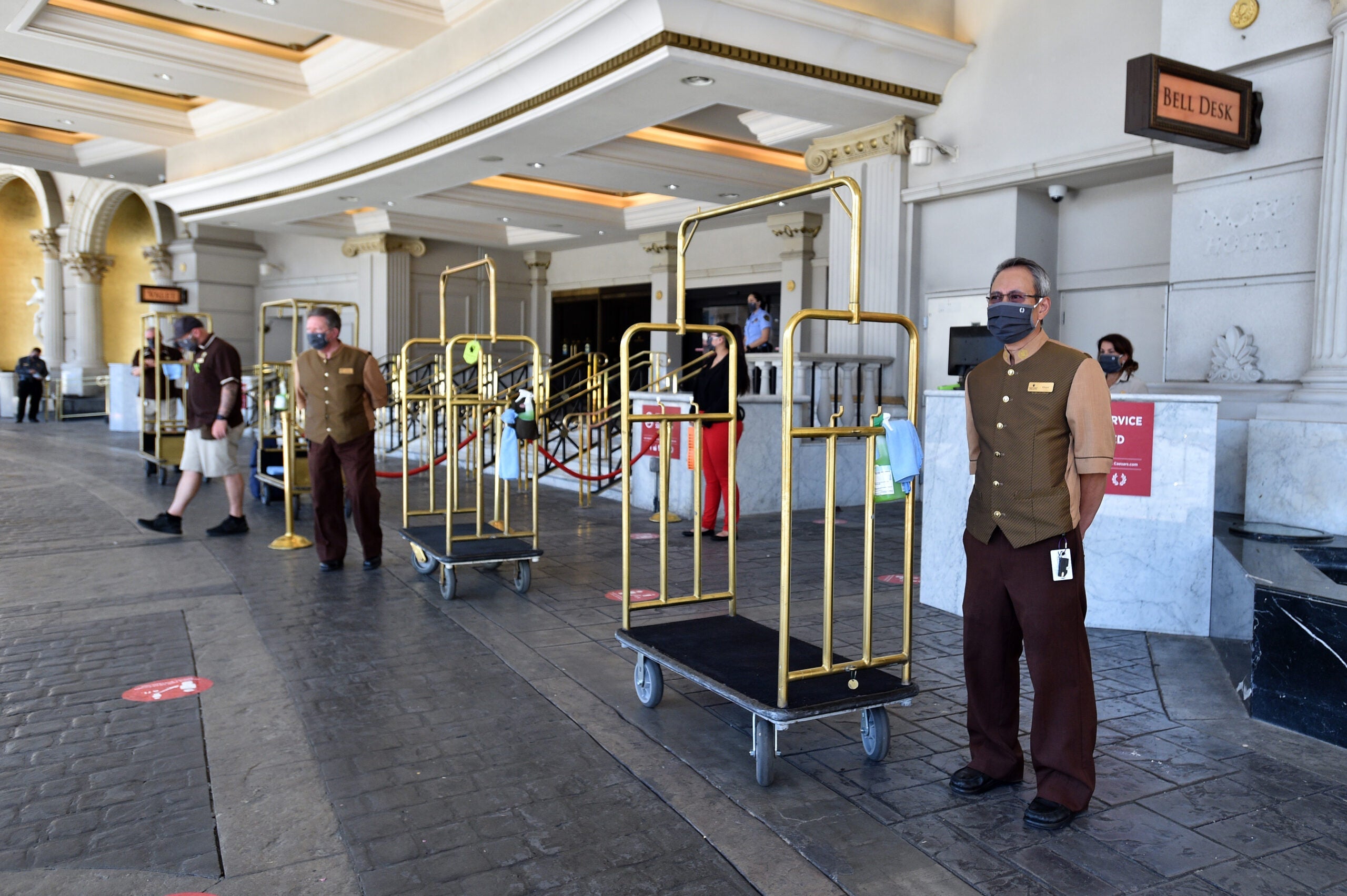
With a long winter ahead of us, it's reasonable to expect that the hotel industry in the U.S. will see occupancy rates drop to levels reminiscent of the beginning of the pandemic.
Over the summer, as travel restrictions were being lifted, we saw hotels in "drive-to" destinations (think: places that many people can access relatively easily with their cars) fill almost to capacity.
But now, the country is watching both COVID-19 cases and death counts rise even as vaccines (which could be distributed to the general public by late spring 2021) arrive.
Related: What your hotel stay will look like in a world after coronavirus
Many people are deciding to shelter in place once again and play it safe until much more of the population is vaccinated. With worsening weather and no more school breaks on the immediate horizon, many families are neither interested in, nor have the time, to travel. This all adds up to a dark few months for hotels across the country.
While a majority of hotels in the U.S. have reopened, it's likely some will close once again, at least temporarily, which could lead to another painful round of layoffs. In Las Vegas, we've already seen some mega-casino resorts close their doors in the middle of the week due to lack of demand. Both the Mandalay Bay and Mirage properties in Las Vegas, for example, have decided only to accept guests from Thursday to Sunday.
We don't know at this point whether that grimmest of scenarios — one that plunges U.S. hotel occupancy levels back to an average of just 23% — will come to pass, but we are certain there will be another softening of demand.
Cruise lines tread water as lockdowns stall comeback plans
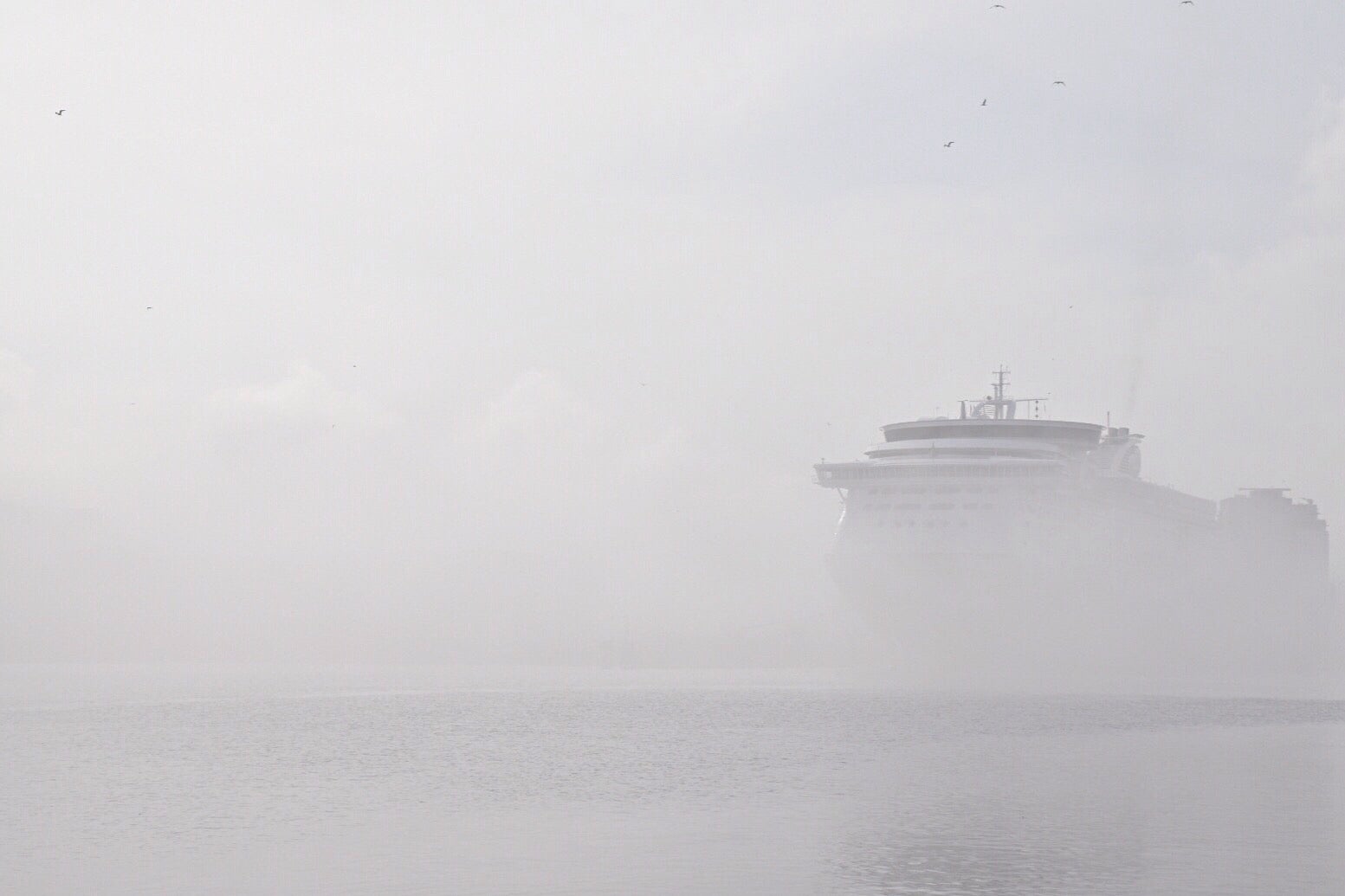
The comeback of cruising that began over the summer in Europe started to stall in October as the coronavirus surged. And now it's in full reversal mode.
Two of the biggest lines to restart limited sailings in Europe in recent months, MSC Cruises and Costa Cruises, just announced a pause to all voyages through at least early January due to growing travel restrictions brought on by higher COVID-19 case counts. Other lines that had hoped to restart operations for the first time this month or in January have pushed back their return-to-service dates by several months.
Many of the world's biggest cruise lines, including Royal Caribbean, Norwegian Cruise Line, Carnival Cruise Line and Celebrity Cruises, now are saying they won't restart departures in all or most regions of the world until at least March. Some lines, such as Oceania Cruises, Regent Seven Seas Cruises and Windstar Cruises have pushed back their restart dates worldwide to April or May.
Related: How the experience will be different when cruising returns
With a few exceptions, the ships that restarted operations in Europe and elsewhere in recent months remained COVID-19 free, thanks to rigorous new procedures. But cruise executives say it's become tough to continue operating with escalating travel restrictions. Dozens of river cruise ships restarted operations in Europe over the summer, for instance, with almost no coronavirus-related incidents. But they've all had to shut down operations since October due to lockdowns.
In North America, cruising has been almost nonexistent since March -- and is likely to stay that way through at least the spring. The U.S. Centers for Disease Control and Prevention (CDC), which has the power to stop cruise ships from sailing in U.S. waters during a health crisis, has established a road map for a return to cruising in the region that could see cruise ships sidelined for at least three or four more months.
What will it take to wake up the travel industry?
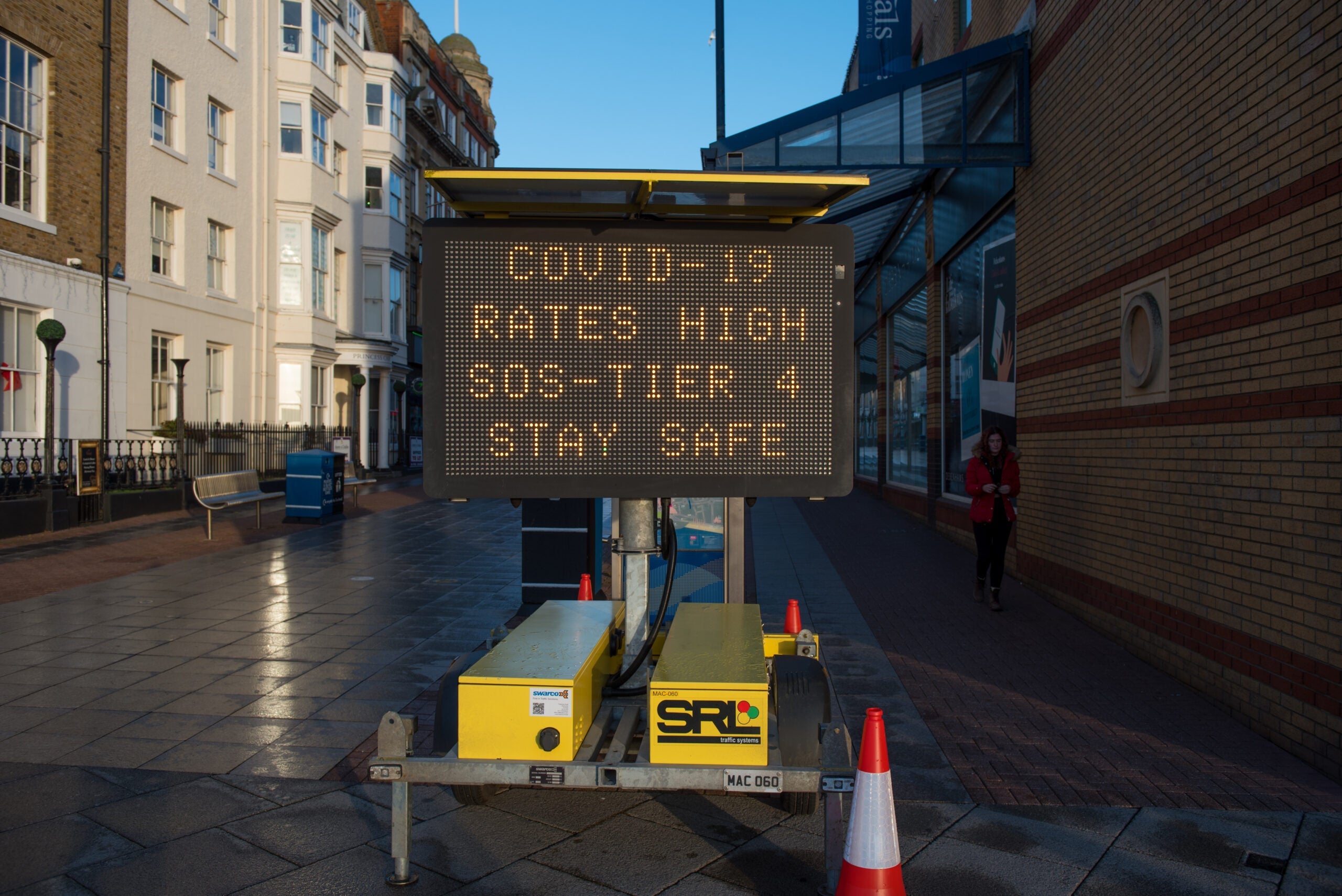
As we've seen over the last few days, one step forward can quickly be met with two (or 10) steps back.
At this point, there's little question that what the travel industry needs to recover truly is some combination of a widespread, successful vaccination rollout and more compliance with mask mandates, testing, targeted stay-at-home orders and other regulations designed to slow the spread of the coronavirus. Because until the coronavirus is firmly under control, travel won't be able to rally in a meaningful or lasting way.
You simply can't ignore the correlation between loosened restrictions, increased travel and the spike in case counts. And when there's a rise in cases, new bookings slide and there's a flurry of new cancellations.
So, while some travelers will inevitably keep flying and certain destinations will remain open regardless of whatever is going on around them, wide-scale, sustained improvement is likely at the mercy of science and public health policies that get the virus under control.
As we wait for full vaccine deployment, which is at least several months out (potentially not until the second half of 2021), there's still hope for some level of safe travel. Easily accessible and accurate testing can help fill the gap between where we are and widespread vaccination. While highly accurate PCR tests with rapid results are still hard to access for travel in many parts of the country, perhaps at-home tests, such as the just-approved Ellume test, which delivers results within 15 minutes for about $30, will make it easier for travelers to make smart, informed travel decisions.
Already, we've seen a growing list of destinations -- and even resort hotels -- shift to requiring an on-the-spot COVID-19 test in addition to mandatory pre-travel testing.
Increased rapid testing; travel bubbles; and procedures that keep travelers as safe as possible can help bridge the gap, but only when other public health measures can control community spread and lower case rates.
Searching for silver linings in the dark
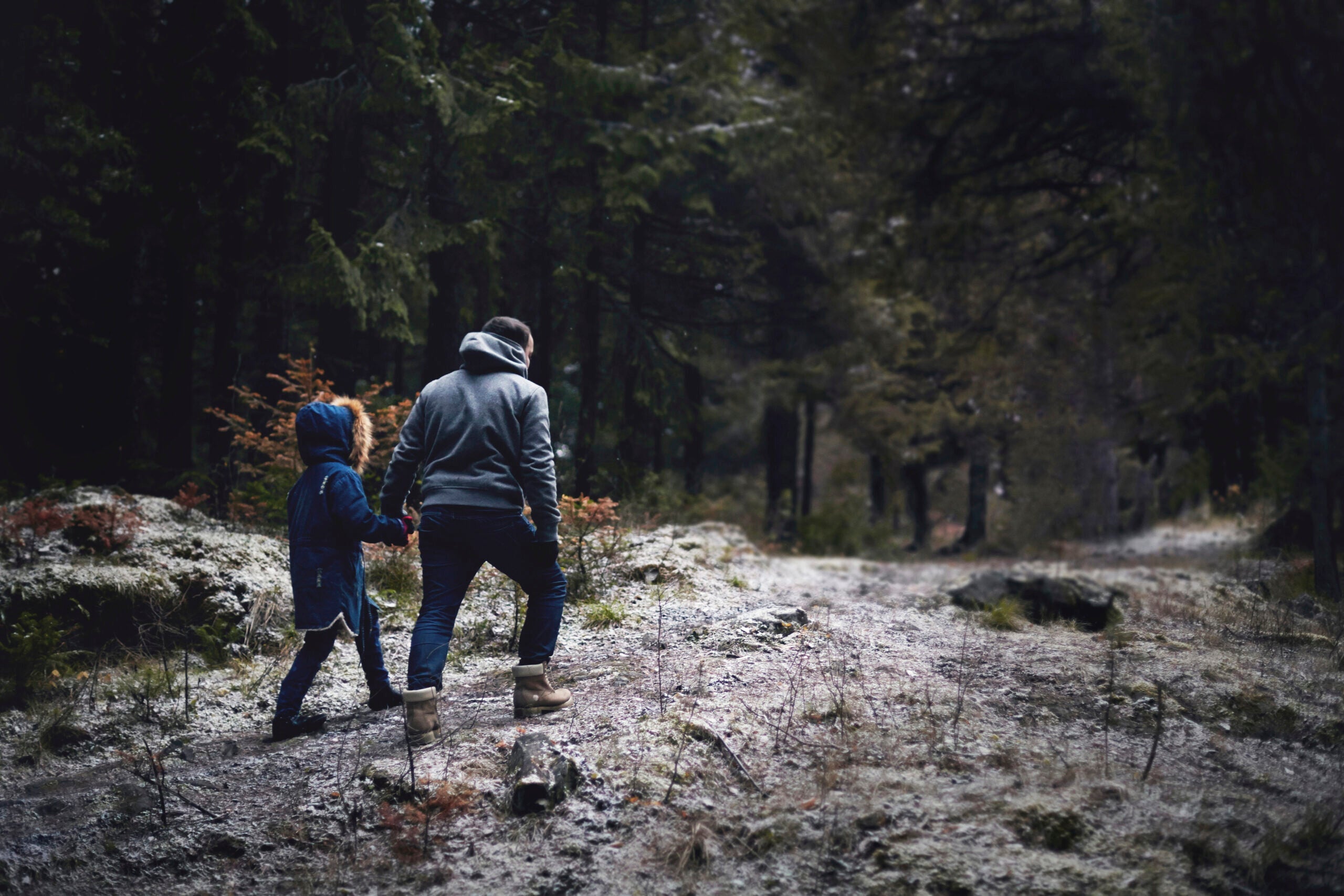
Believe it or not, it hasn't been all bad news for the travel industry — or for all travelers. The silver linings have been thin and few and far between, but you can see them glimmering if you squint hard enough.
The pandemic has forced travelers to rethink the entire concept of travel. People have opted for close-to-home getaways and had the opportunity to find new reasons to love their home states. Travelers have rediscovered classic road trips, which really allow you to appreciate the journey (and the passing scenery). And for so many people, this year has brought a renewed appreciation for the great outdoors: our beaches, national and state parks, lakeshores and even our time at slopes or exploring the backcountry.
This year, we've gone hiking, climbing, sledding, skiing and snowboarding, swimming, cycling, horseback riding and driving. We've hit the road in our cars and RVs. We've spent the night at campgrounds, in tiny houses and private vacation rentals. Even motels with walk-up direct room accessibility are experiencing renewed relevance. We've prioritized health and safety. And we've spent more time dreaming and planning for the future than ever before.
Related: Now may be the time to book future travel
Though the pandemic has been bad news for many industries, it may also make travel more affordable for people in the future. We've seen incredible deals and value-added incentives this year, and we expect travelers to find bargains long after the pandemic is safely behind us.
Credit card issuers are offering unprecedented sign-up bonuses and issuing innovative statement credits and bonus categories to keep cardholders content. Since many people aren't using their points and miles at the moment, balances continue to balloon and, hopefully, consumers will be able to start redeeming all those stockpiled points by the third quarter of next year.
If nothing else, the pandemic has really forced the travel industry to put its customers first. Many hotel chains and airlines have extended elite status and significantly altered qualification criteria for next year. Many major airlines have permanently removed cancellation and rebooking fees, giving travelers more flexibility than ever before. Resort and parking fees are on the decline. Cleanliness, space and peace of mind have taken top priority.
This isn't to say that the pandemic has been a good thing. It hasn't been -- at all. But as we try to make sense of this long, cold winter, it's possible to see flashes of silver in the dark. And, when the industry does emerge from its extended slumber, perhaps travel will be more accessible and consumer-friendly than ever.
Reporting by Nick Ellis, Clint Henderson, Summer Hull, Melanie Lieberman, Gene Sloan and Benet Wilson.
TPG featured card
at Capital One's secure site
Terms & restrictions apply. See rates & fees.
| 5X miles | Earn 5X miles on hotels, vacation rentals and rental cars booked through Capital One Travel |
| 2X miles | Earn unlimited 2X miles on every purchase, every day |
Pros
- Stellar welcome offer of 75,000 miles after spending $4,000 on purchases in the first three months from account opening. Plus, a $250 Capital One Travel credit to use in your first cardholder year upon account opening.
- You'll earn 2 miles per dollar on every purchase, which means you won't have to worry about memorizing bonus categories
- Rewards are versatile and can be redeemed for a statement credit or transferred to Capital One’s transfer partners
Cons
- Highest bonus-earning categories only on travel booked via Capital One Travel
- LIMITED-TIME OFFER: Enjoy $250 to use on Capital One Travel in your first cardholder year, plus earn 75,000 bonus miles once you spend $4,000 on purchases within the first 3 months from account opening - that’s equal to $1,000 in travel
- Earn unlimited 2X miles on every purchase, every day
- Earn 5X miles on hotels, vacation rentals and rental cars booked through Capital One Travel
- Miles won't expire for the life of the account and there's no limit to how many you can earn
- Receive up to a $120 credit for Global Entry or TSA PreCheck®
- Use your miles to get reimbursed for any travel purchase—or redeem by booking a trip through Capital One Travel
- Enjoy a $50 experience credit and other premium benefits with every hotel and vacation rental booked from the Lifestyle Collection
- Transfer your miles to your choice of 15+ travel loyalty programs
- Top rated mobile app

